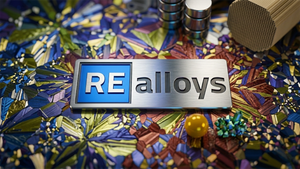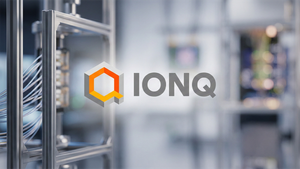
While monopolies are generally illegal under the Sherman Antitrust Act of 1890 in the United States, many continue to exist and thrive in various industries. In the computer and technology sector, some companies maintain a monopoly due to being the best of breed for a particular niche. This is not illegal. Investors looking to add dominant companies in their industry can take a look at these three stocks that dominate with over a 90% market share each in their respective niches.
NVIDIA: Controlling 94% of the AI GPU Market
It should come as no surprise that NVIDIA Co. (NASDAQ: NVDA) controls a greater than 90% market share in the artificial intelligence (AI) chip market. What was once synonymous with PC gaming, then crypto mining, graphics processing units (GPUs) are now the backbone of AI deployment and processing. Thanks to its foresight over 12 years ago in investing in an AI world, NVIDIA is the leader.
GPUs use parallel processing to perform simultaneous calculations on massive data sets far better than the traditional central processing units (CPUs) found in servers and PCs. NVIDIA has enabled the AI revolution to grow at viral speed. Its Hopper GPUs sold out quickly, and its next-generation Blackwell GPUs have already been sold out for the next 12 months as the largest hyperscalers like Amazon.com Inc. (NASDAQ: AMZN), Meta Platforms Inc. (NASDAQ: META) and Microsoft Co. (NASDAQ MSFT) took all the supply. The company reported 122% YoY revenue growth to a record $30 billion in Q2 2024. Data center revenue comprised the bulk of total revenue, coming in at $26.3 billion, up 153% year-over-year (YoY). Its Blackwell GPUs are 4x faster and ensure a long runway of dominance for NVIDIA as it has grown to be Taiwan Semiconductor Manufacturing Co. Limited's (NYSE: TSM) second-largest customer.
Arm Holdings: Controlling 99% of the Smartphone Market
Arm Holdings plc (NASDAQ: ARM) designs chip architecture and licenses it out to semiconductor companies. They collect an upfront licensing fee and ongoing royalties for every chip sold using its architecture. The ARMv8 has dominated the smartphone industry with a 99% market share. Its instruction set architecture (ISA) standardization instructs how software interacts with the hardware. This enables developers to create applications that run consistently on any device using ARM processors.
Its ARMv8 architecture is celebrated for energy efficiency, which is an absolute priority for smartphones that rely on battery power. It enables smartphones to optimize their battery life better and operate longer between charges. ARMv8 also enables efficient multitasking and powerful high-performance applications on mobile phones. ARMv8 has become a standard as the largest smartphone manufacturers, including Apple Inc. (NASDAQ: AAPL), Qualcomm Inc. (NASDAQ: QCOM) and Samsung Electronics Co. Ltd. (OTCMKTS: SSNLF) license ARMv8 technology.
Arm has been growing its ARMv9 licenses as it's acclimated to AI processing and energy management, which makes it critical for Edge AI deployment. The ARMv9 royalties are double the rate of ARMv8, which ensures a long runway driven by the AI boom.
ASML Holding: Controlling the EUV Lithography Market
With over a 90% market share in the extreme ultraviolet (EUV) lithography industry, ASML Holding N.V. (NASDAQ: ASML) lithography machines are necessary to produce AI chips. These machines can weigh over 200 tons and cost $150 million to $400 million. They need at least a two-year lead time, and delivery requires 13 large shipping containers and 250 crates. Its next-generation NXE systems enable geometric chip scaling with the most advanced nodes starting at just 2nm. The company expects China's business to return to a more normalized percentage.
ASML had a hiccup in its third quarter of 2024 earnings report. Bookings collapsed 53% YoY. This was mostly due to falling demand in non-AI and consumer electronics. AI demand remains robust. The company lowered its Q4 2024. Net bookings dropped 52.8% but rose 1.2% YoY in Q3 2024. However, the company expects strong sales growth to $37.45 billion in 2025, driven by AI demand.
The company stated that outside of AI, the rest of the semiconductor market is recovering slowly. ASML CEO Christophe Fouquet stated, “With regards to market condition, while we continue to view AI as a key driver of the industry recovery with potential upside, we see other segments recovering more slowly than anticipated. The recovery will extend well into 2025, leading to customer cautiousness and some pushouts in their investment.”





